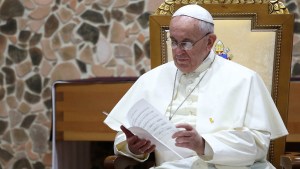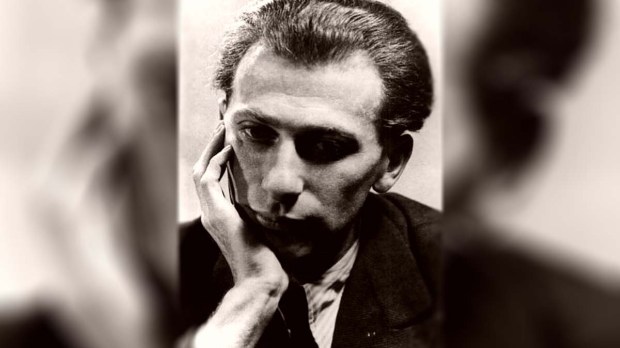Pope Francis, who was once a literature professor, often makes references to great poets or writers in his addresses. Particularly when he makes an apostolic visit, or speaks to a particular country, he often draws from the great writers who have formed their culture.
On his trip this September 12 to Budapest, he again called on the lessons of poetry, speaking of “all those friends of God who shone his light on the darkness of this world.”
He was addressing representatives of the Ecumenical Council of Churches and some of Hungary’s Jewish communities.
This time, his reference was to “Miklós Radnóti, a great poet of this country. His brilliant career was cut short by the blind hatred of those who, for no other reason than his Jewish origins, first prevented him from teaching and then separated him from his family.”
While imprisoned in a concentration camp — in what the Pope called “the darkest and most depraved chapter of human history” — the poet continued to write. Only one collection of his poems survived the Shoah, called the Bor Notebook.
It testifies to the power of his belief in the warmth of love amid the icy coldness of the camps, illumining the darkness of hatred with the light of faith. The author, crushed by the chains that constrained his soul, discovered a higher freedom and the courage to write that, “as a prisoner… I have taken the measure of all that I had hoped for” (Bor Notebook, Letter to his Wife).
He also posed a question that resonates with us today: “And you, how do you live? Does your voice find an echo in this time?” (Bor Notebook, First Eclogue).
“Our voices, dear brothers and sisters, must not fail to echo that Word given us from Heaven, echoes of hope and peace,” the Pope said. “Even if no one listens or we are misunderstood, may our actions never deny the Revelation to which we are witnesses.”
Roots
The Pope continued citing Radnóti’s work. The poet wrote, “I am now myself a root… Once a flower, I have become a root” (Bor Notebook, Root).
The Pope said:
We too are called to become roots. For our part, we usually look for fruits, results or affirmation. Yet God makes his word fruitful on the earth with a soft rain that makes the fields flower (cf. Is 55:10). He reminds us that our faith journeys are but seeds, seeds that then become deep roots nourishing the memory and enabling the future to blossom.
This is what the God of our fathers asks of us, because – as another poet wrote – “God waits in other places; he waits beneath everything. Where the roots are. Down below” (Rainer Maria Rilke, Vladimir,the Cloud Painter).
The Pope urged forming these roots by “listening to the Most High and to others,” so as to “reach the heights,” and to become “roots of peace and shoots of unity,” thus being credible in the eyes of the world.
The Holy Father, who will turn 85 in December, concluded his address with a light-hearted apology:
Please forgive me for speaking while seated, but I am no longer fifteen years old! Thank you.


